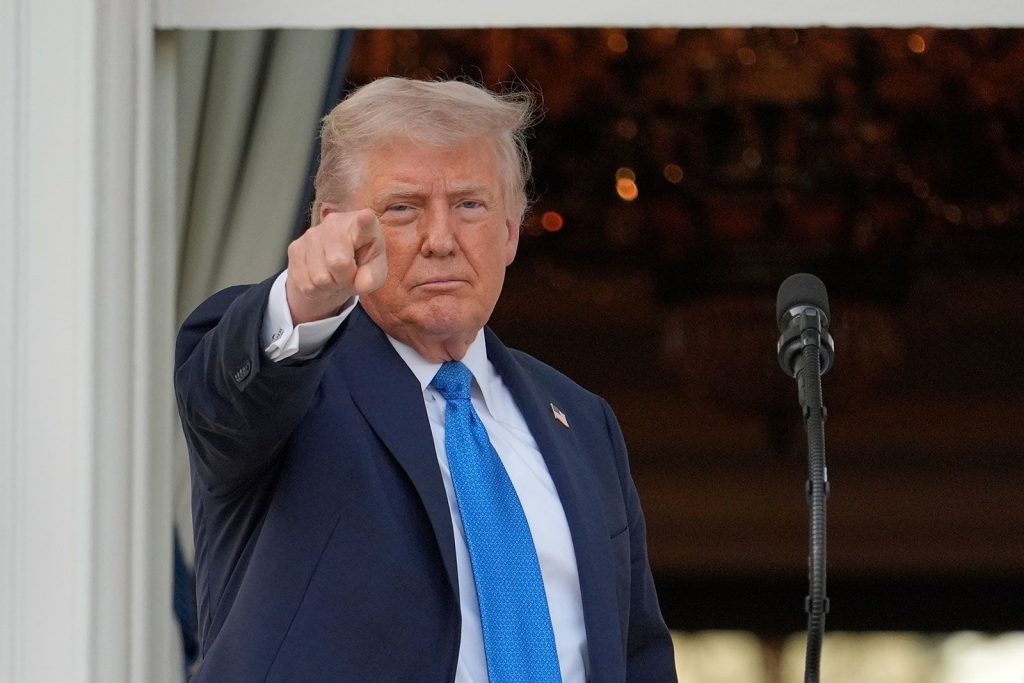News
Exiled Prince Calls for Revolution, Iranians Say ‘Not Now’
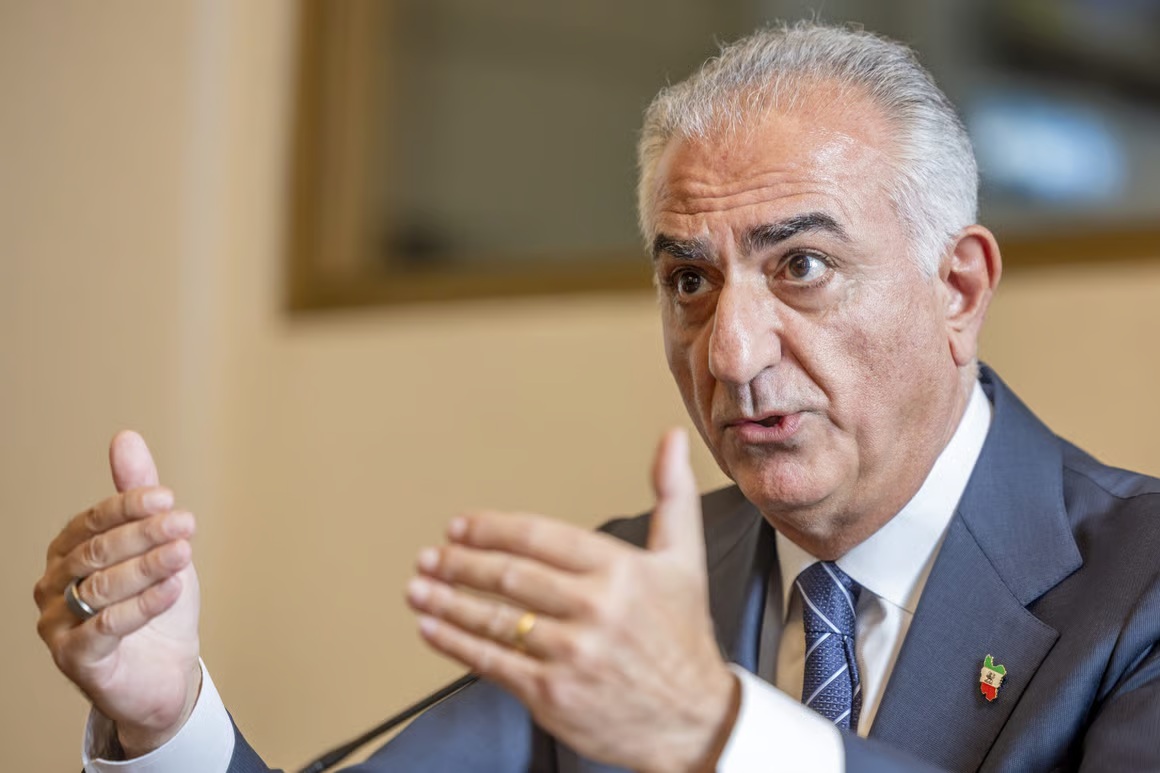
On the eve of a fragile ceasefire between Israel and Iran on June 24, Reza Pahlavi, the exiled son of Iran’s last Shah, appeared at a televised press conference in Paris.
Clad in a grey suit and blue tie, the self‑styled crown prince delivered an impassioned appeal: urging the United States to resist offering Iran’s embattled leadership a “lifeline,” especially in terms of nuclear diplomacy.
He fiercely proclaimed that the Islamic Republic is teetering on collapse.
Pointing to what he termed a “Berlin Wall moment,” he implored ordinary Iranians to march into the streets and urged members of Iran’s army and security apparatus to defect and side with civilians
He declared: “This is our Berlin Wall moment,” adding:
“But like all moments of great change, it comes fraught with danger.…
“One road leads to bloodshed and chaos, the other to a peaceful and democratic transition.…
“If the West throws the regime a lifeline, there will be more bloodshed and chaos…
“No country and no people are safe…
“There is only one way to achieve peace: a secular democratic Iran.…
“I am here today to submit myself to my compatriots to lead them down this road of peace and democratic transition.”
He also emphasized that Western nations must stand with the Iranian people, not prop up the regime through renewed negotiations.
“I can hardly imagine … a regime that is now severely diminished … in the mood for more talks,” he said, adding that Khamenei’s rule is “closer every day to ending”
Misreading the Moment
Despite his urgent call to action, Pahlavi’s forecast of mass protests failed to materialize.
Across Iran, instead of turning its back on the regime, Iranians, including many disillusioned with Khamenei’s government, rallied around the nation in response to foreign airstrikes.
According to Middle East analyst Arash Azizi, Israel’s bombing campaign unified the population behind state symbols rather than against them .
Across media outlets, from the Financial Times to Jacobins UK and Al Jazeera, experts argue that Pahlavi has misjudged public sentiment.
People aren’t ready to side with Israel, especially amid widely criticized attacks that have killed hundreds, including civilians.
Trita Parsi, author of Treacherous Alliance, notes that Pahlavi’s refusal to condemn Israel’s bombing campaign, and his silence on attacks that killed civilians, “destroyed much of the brand name [of the shah]” among Iranians.
Indeed, his close ties to Israel, including a public 2023 visit where he met with Prime Minister Netanyahu, have deeply alienated many Iranians, whether government supporters or critics
Analysts say this has reinforced perceptions that Pahlavi is detached from ordinary Iranians who oppose both the Islamic Republic and any foreign intervention
The Appeal of Nostalgia
What remains of Pahlavi’s support today is rooted largely in nostalgia and diaspora identity.
In the West, particularly among British‑Iranians, his symbolic role as a link to a secular, pre‑revolution Iran keeps his base alive.
One British‑Iranian woman in her late 20s told Al Jazeera that she supports Pahlavi less for his policies than as an emblem of the Iranians who lived “under the shah … secular and pro‑West”.
Her 64‑year‑old aunt shared a similar sentiment, saying: “He’s … so friendly with America, Europe and Israel, and we need somebody like that [in Iran].”
Yet even within the diaspora, Pahlavi’s support is fragile.
His vision of monarchy is weighed down by historical baggage:
- his grandfather’s brutal suppression of dissent;
- extensive SAVAK-era torture; and,
- an overwhelming economic disparity that culminated in the infamous 2,500-year celebration in 1971—an event that heaped resentment on the monarchy and provoked public backlash .
From Monarchy to Democracy?
During the Paris conference, Pahlavi presented detailed plans:
- a national unity summit,
- an economic recovery roadmap, and,
- a three-phase reconstruction program.
These were all aimed at establishing a secular democratic Iran
He even suggested he might serve as a constitutional monarch if asked by the people, though he emphasized he does not seek power for its own sake
Yet these policy proposals contrast starkly with critiques from both inside and outside Iran.
Experts argue that without a credible popular base or support from security elites, Pahlavi’s vision is more fantasy than plausible strategy
Many Iranians remain wary of foreign-backed figures, fearing prolonged instability and authoritarian resurgence.
The Israel Question: Deal-Breaker?
Perhaps the deepest fissure comes from Pahlavi’s relationship with Israel.
His 2023 trip to Jerusalem and friendly ties with Netanyahu’s government struck a chord of alienation among Iranians, especially among pro-Palestinian or secular critics
Seeing him embrace Israeli military leadership while condemning the Iranian regime amplified concerns that he is more aligned with foreign powers than internal reform.
As Al Jazeera’s coverage put it: millions of Iranians oppose both the regime and Western intervention, making Pahlavi’s stance “counterproductive” .
The Verdict
Reza Pahlavi’s Paris call may have been a dramatic and dignified plea—“our Berlin Wall moment”—but the Iranian public largely remains unconvinced.
His failure to denounce civilian casualties, his open alignment with Western and Israeli actors, and long-standing misreading of Iran’s political currents all suggest he is more symbolic than strategic.
His appeal now hinges on nostalgia among older generations and Iranians abroad.
But with no real traction inside Iran and deep mistrust from civic groups, his political star seems unlikely to rise anytime soon.
In a moment many hoped would herald decisive change, Pahlavi stands at a crossroads, his legacy and future firmly tied to an exile-bound identity.
For millions of Iranians, the path forward may lie not in monarchic restoration, but in their own unyielding desire for internal, independent transformation.
News
VIRAL VIDEO: Moment Yahaya Bello Orders Kogi State House Members to Sit on Floor, Gives Strict Directives

A viral video circulating on social media has captured former Kogi State Governor Yahaya Bello making newly elected State House of Assembly member, Hassan Shado, and his supporters sit on the floor during a meeting in Abuja.
The meeting took place at Bello’s residence on Monday, where he received members of the All Progressives Congress (APC) to discuss party unity and responsibilities.
Shado, who won the Dekina-Okura II State Constituency by-election on August 16, was formally presented to the former governor.
INEC declared Shado the winner after he polled 55,073 votes, defeating Godwin Meliga of the PDP, who garnered 1,038 votes.
During the session, Bello emphasized that Shado must strictly obey the directives of Governor Ahmed Usman Ododo in all legislative matters.
He drew his ear to stress the importance of cooperation, warning the lawmaker to align with Assembly decisions even when he did not fully understand them.
Bello said, “Go and cooperate with the Speaker and other members of the House of Assembly. Support Governor Ododo in everything that comes to the Assembly, even if you don’t understand it.”
Bello also reminded Shado that political victories are collective achievements.
He stated, “No candidate wins an election alone. Your people worked tirelessly from nomination to election day. Do not let them down.”
He urged inclusivity, consultation, and collective leadership, emphasizing that unity remains the key to APC’s continued success in Kogi State.
The former governor praised the people of Kogi East for demonstrating unity, which he said had been lacking in the past.
He further expressed confidence that APC would retain all major political positions in upcoming elections, declaring, “Our President, Bola Tinubu, will be re-elected.
Governor Ododo will be re-elected. All our candidates will continue to win on our great party’s platform.”
Bello’s post-governorship period has been marked by controversy.
The EFCC accused him of diverting over N110 billion from Kogi State coffers during his tenure.
He evaded multiple court summons and even a failed arrest in Abuja that led to a shootout. Ultimately, Bello surrendered to the EFCC on November 26, 2024, after months of avoiding legal proceedings.
Despite his legal troubles, Bello maintains influence over APC lawmakers in Kogi and continues to assert political authority, as shown in the recent video with Shado.
Watch the video below.
Africa
Why Every Nigerian Should Learn Combat Skills — CDS

The Chief of Defence Staff (CDS), General Christopher Musa, has urged all Nigerians to acquire combat skills such as Karate, Taekwondo, and Judo to protect themselves in the face of increasing danger.
Speaking on Channels Television’s Politics Today programme on Thursday, August 21, General Musa likened learning martial arts to other essential survival skills, including driving and swimming.
“That one should be taken as learning driving, learning how to swim.
Whether we have war or not, it is a survival instinct,” he said.
He added that in Europe, swimming and basic security education are compulsory because citizens must understand and practice personal safety.
The defence chief emphasised that the National Youth Service Corps (NYSC) should incorporate unarmed combat training into its programme to prepare graduates for real-world threats.
He explained, “That’s what the NYSC is supposed to do, but the NYSC has been watered down to three weeks. Self-defence is very important.
Unarmed combat, swimming, driving these are critical aspects of human survival. We should never take them for granted because they prepare us for the future.”
General Musa further encouraged Nigerians to remain situationally aware of their environment, alerting authorities to any suspicious activities or individuals.
He said, “The world we are in now is dangerous. We have individuals who don’t mean people well. They kill for whatever reason.”
Highlighting evolving threats, General Musa disclosed that terrorists increasingly use gold to finance their operations.
He noted that complex international networks make it difficult to immediately expose or prosecute these financiers. “Gold is the main source.
They circulate it through various channels, including foreign links, which complicates intervention,” he explained.
General Musa acknowledged that bad roads and challenging terrains hinder rapid military response to attacks.
He said, “Many Nigerians expect immediate intervention from the Armed Forces without understanding the logistical challenges. By the time information reaches us, terrorists have already struck and vanished because they move more quickly in these regions.”
He added that improvised explosive devices (IEDs) in the North-East further slow troop movement.
Regarding the Southeast, General Musa noted that the arrest of pro-Biafran agitator Simon Ekpa in Finland in November 2024 has improved security in the region.
He said, “Troops are actively pursuing Ekpa’s lieutenants in Imo, Enugu, Anambra, Ebonyi, and Abia states. We will continue operations until all threats are neutralised.”
The CDS also praised the synergy among the Nigerian Army, Air Force, and Navy, which led to the arrest of Ansaru terrorist leaders, describing it as a major success in the fight against terrorism.
General Musa concluded by announcing an African Chiefs of Defence Staff conference to foster continental collaboration and enhance regional security efforts.
Health
Police Arrest Fake Doctor as Woman Dies During Abortion

Detectives from the Akwa Ibom State Police Command have arrested a man posing as a medical doctor following the death of a 35-year-old woman, Blessing Sunday Etim, during an alleged illegal abortion.
The suspect, identified as Sunday Okon Akpan, reportedly owns and operates the Full Life Medical Centre (FLMC) in Ikot Obio Odongo, Ibesikpo Asutan Local Government Area.
Deputy Superintendent of Police (DSP) Timfon John, the spokesperson for the Akwa Ibom Police Command, revealed that police launched a search for the victim after receiving a distress call from her mother.
DSP John stated that operatives acted quickly following the report, which indicated that Blessing had gone to work at the FLMC and never returned.
According to police reports, the suspect attempted to secretly dispose of the victim’s body in her room.
A co-tenant, who witnessed the act, raised an alarm, forcing the suspect to abandon the corpse and flee the scene.
Police quickly arrived at the scene, where detectives discovered a premature foetus, confirming the occurrence of an illegal abortion.
Police traced and arrested Sunday Okon Akpan, a resident of Afaha Offiong village, Nsit Ibom LGA.
Preliminary investigations indicate that the suspect is not a licensed medical doctor or nurse but a community health practitioner who allegedly used his clinic to perform illegal medical procedures, including abortions.
The health centre has since been found abandoned.
DSP John confirmed that the victim’s body has been deposited at a morgue for preservation and autopsy, while investigations continue to uncover more details surrounding the incident.
She also promised to update the public as the probe progresses.
This shocking incident highlights the dangers of unlicensed medical practitioners operating clinics and offering illegal procedures.
Police authorities are warning residents to verify the credentials of anyone offering medical services and to report suspicious activities to prevent similar tragedies.
As the investigation unfolds, Akwa Ibom police have vowed to ensure that justice is served, and the public remains safe from unqualified medical practitioners operating in the state.
News
Trump Orders Review of 55 Million US Visa Holders in Mega Crackdown
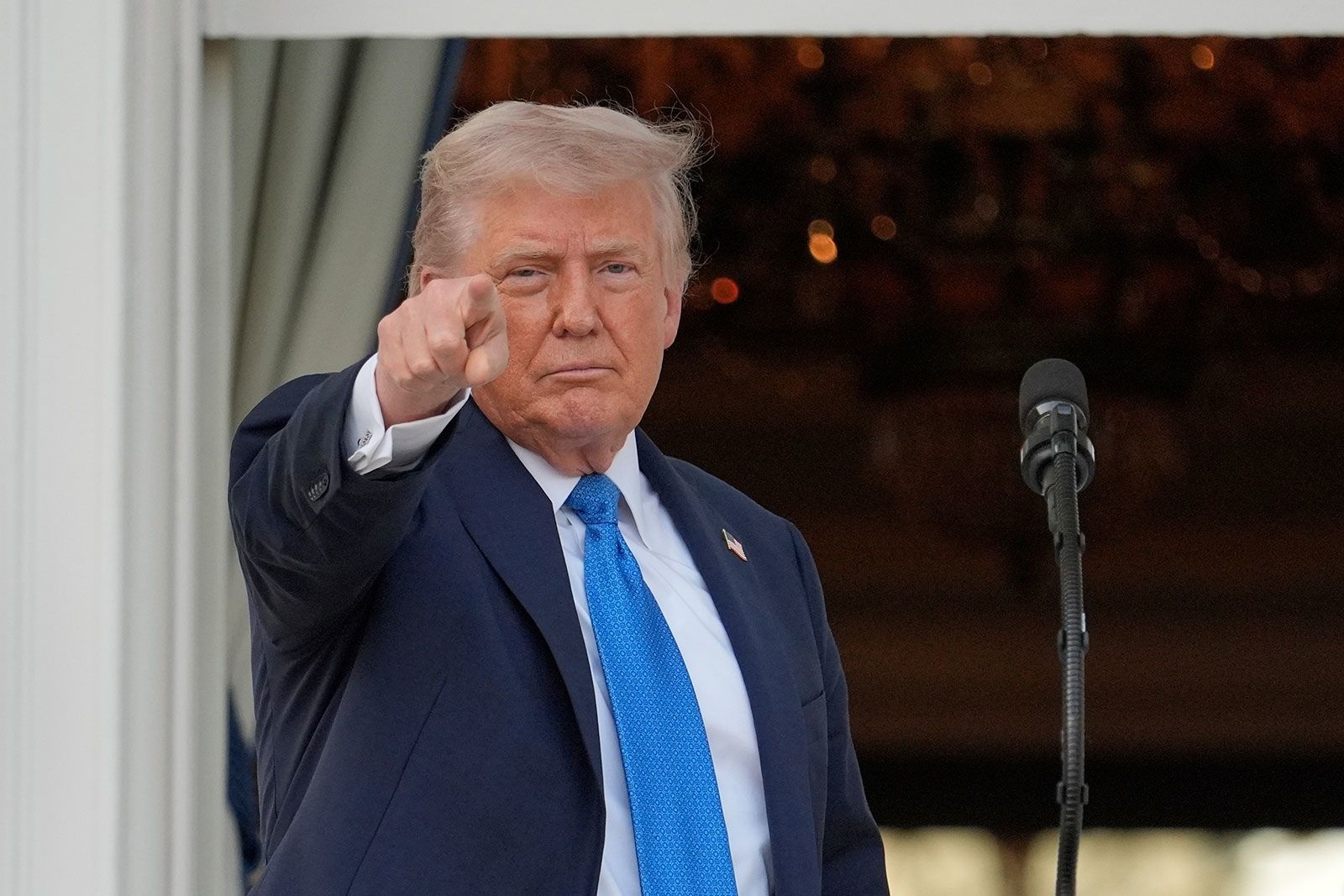
The Trump administration has announced a sweeping review of more than 55 million foreigners holding US visas, aiming to identify potential violations that could trigger visa revocation or deportation.
In a statement to The Associated Press, the State Department confirmed that all visa holders are now subject to “continuous vetting.”
Officials will examine any indicators of ineligibility, including overstaying authorised periods, criminal activity, threats to public safety, engagement in terrorism, or support for terrorist organisations.
If authorities find evidence of such violations, they will revoke the visa, and individuals already in the US could face immediate deportation.
Officials stressed that the review targets both individuals residing in the United States and those holding multiple-entry visas abroad.
Since assuming office, President Donald Trump has prioritized strict immigration enforcement, targeting not only undocumented migrants but also holders of student and visitor exchange visas.
The current vetting process extends far beyond prior reviews, potentially affecting individuals who initially received approval to stay in the US.
According to the Department of Homeland Security, last year the US had 12.8 million green-card holders and 3.6 million people on temporary visas.
Immigration policy expert Julia Gelatt of the Migration Policy Institute noted that the 55 million figure likely includes individuals living abroad with tourist or business visas. She questioned whether allocating resources to review people unlikely to return justifies the scale of the initiative.
Alongside the review, Secretary of State Marco Rubio announced on X that the US will immediately halt work visas for commercial truck drivers, citing safety risks and threats to American jobs.
“The increasing number of foreign drivers operating large tractor-trailer trucks on US roads is endangering American lives and undercutting the livelihoods of American truckers,” Rubio wrote.
The administration recently strengthened English proficiency requirements for foreign truckers following incidents where language barriers contributed to accidents. State Department officials confirmed they are pausing the processing of new work visas to reassess screening and vetting protocols.
“Ensuring that every driver meets the highest standards protects American workers and maintains a secure, resilient supply chain,” the department added.
Experts warn the broader implications of the review could ripple across the US economy. Edward Alden, senior fellow at the Council on Foreign Relations, explained that the administration’s policies aim to discourage companies, universities, and hospitals from employing foreign workers.
“The economic consequences will extend far beyond individual visas,” Alden said, emphasizing that employers risk compliance issues if they continue hiring foreign staff.
The review represents the most comprehensive enforcement action in recent US history and signals that the administration will aggressively monitor both legal and temporary visa holders to maintain national security and prioritize domestic employment.
News
2027: ADC Coalition Deceiving Nigerians – Baba-Ahmed
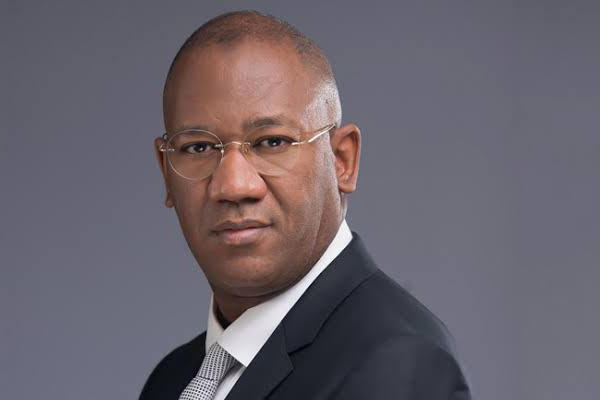
The 2023 Labour Party (LP) vice-presidential candidate, Datti Baba-Ahmed, has warned Nigerians that the opposition coalition under the African Democratic Congress (ADC) is giving false hope about rescuing the country from underdevelopment.
“They are deceiving us,” Baba-Ahmed said during an interview on Channels Television’s Politics Today on Friday.
Baba-Ahmed, who ran alongside Peter Obi in the 2023 presidential election won by Bola Tinubu of the All Progressives Congress (APC) expressed his willingness to be Obi’s running mate in the 2027 presidential election.
Although Obi has shown interest in the 2027 race and is aligning with ADC coalition figures such as David Mark, Atiku Abubakar, Nasir el-Rufai, Rotimi Amaechi, and Rauf Aregbesola, Baba-Ahmed stressed that he wants Obi to remain in the Labour Party and contest as its presidential candidate.
“I’m in the Labour Party. I’m a Peter Obi man. I still want Peter Obi to come back to the Labour Party and contest the 2027 election,” Baba-Ahmed stated.
When asked about his plans for the 2027 race, Baba-Ahmed confirmed his readiness to serve as a running mate for like-minded leaders committed to restoring Nigeria.
“If Nigeria is still around and there is an electoral system to follow, my love for Nigeria is undying.
I would appropriately associate with groups and individuals aligned with restoring the nation,” he said.
Baba-Ahmed also revealed two potential leaders he would consider deputising, with Peter Obi being his primary choice. “The first one has not said anything.
The second one is Peter Obi. I’m always with Peter Obi until he decides not to,” he added.
-
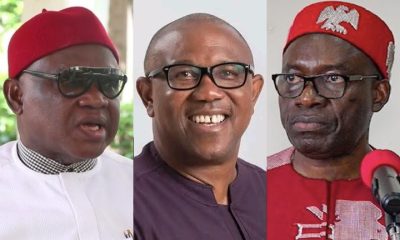
 Featured4 days ago
Featured4 days agoYour Attacks on Peter Obi Are Petty, Stop It! Chekwas Rebukes Soludo
-

 News4 days ago
News4 days agoTension in Anambra community as senior police officer shoots kinsman dead
Colleagues, others try cover-up; victim's family fights back
-

 News7 days ago
News7 days agoAnambra South Bye-Election: APC Chief Rescues Deputy Gov Caught In Vote Buying From Angry Youths
By Chuks Collins, Awka
-

 Celebrity/Entertainment1 day ago
Celebrity/Entertainment1 day agoHow Nigerian TikToker Geh Geh Made ₦45 Million in One Night
-

 News5 days ago
News5 days agoNigerian visa applicants must provide 5-yr social media history — US embassy
-

 Analysis6 days ago
Analysis6 days agoSystemic Sabotage: How APC, INEC Colluded To Undermine Amamgbo’s Senatorial Bid
By Arthur Ezechukwu
-

 News3 days ago
News3 days agoTerrorist Organisation: APC, PDP Members in US, UK, France Risk Deportation
-

 Celebrity/Entertainment5 days ago
Celebrity/Entertainment5 days agoWhy single mothers can’t raise boys into proper men — Jim Iyke
-

 News7 days ago
News7 days agoBREAKING: Troops arrest Nigeria’s most wanted terror kingpin
-

 News2 days ago
News2 days agoVandal electrocuted while vandalizing Aba power infrastructure




